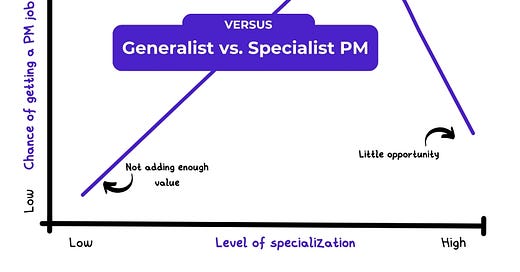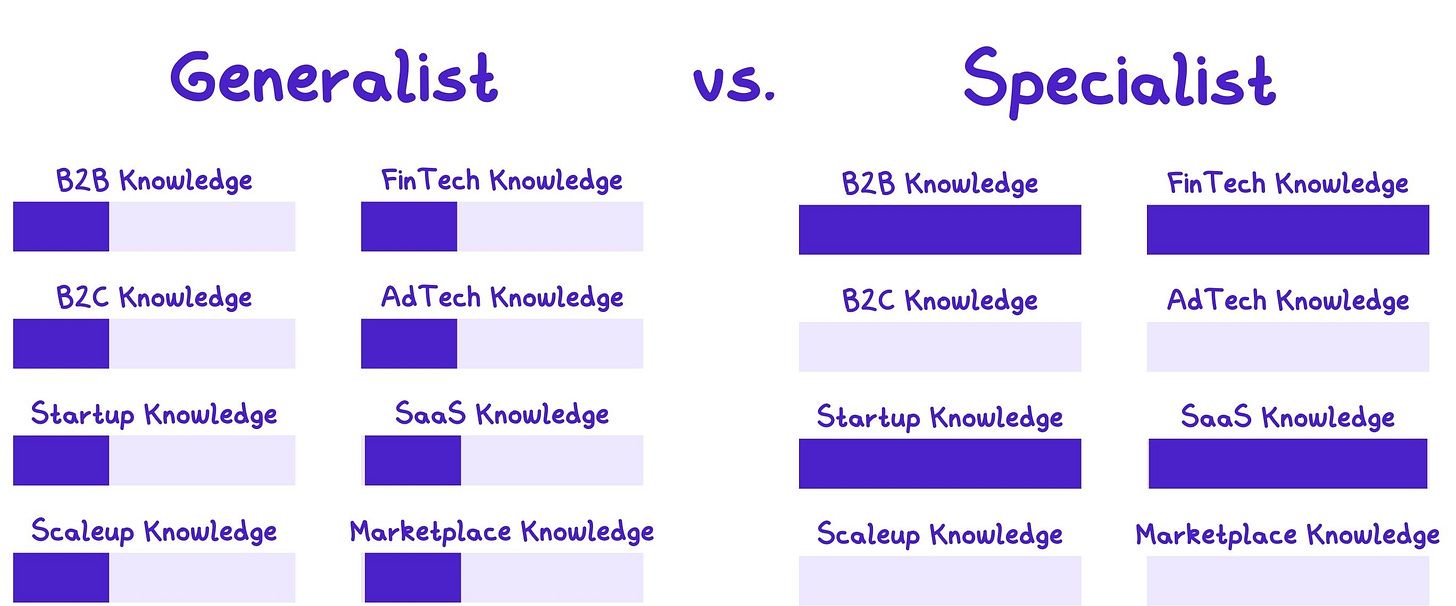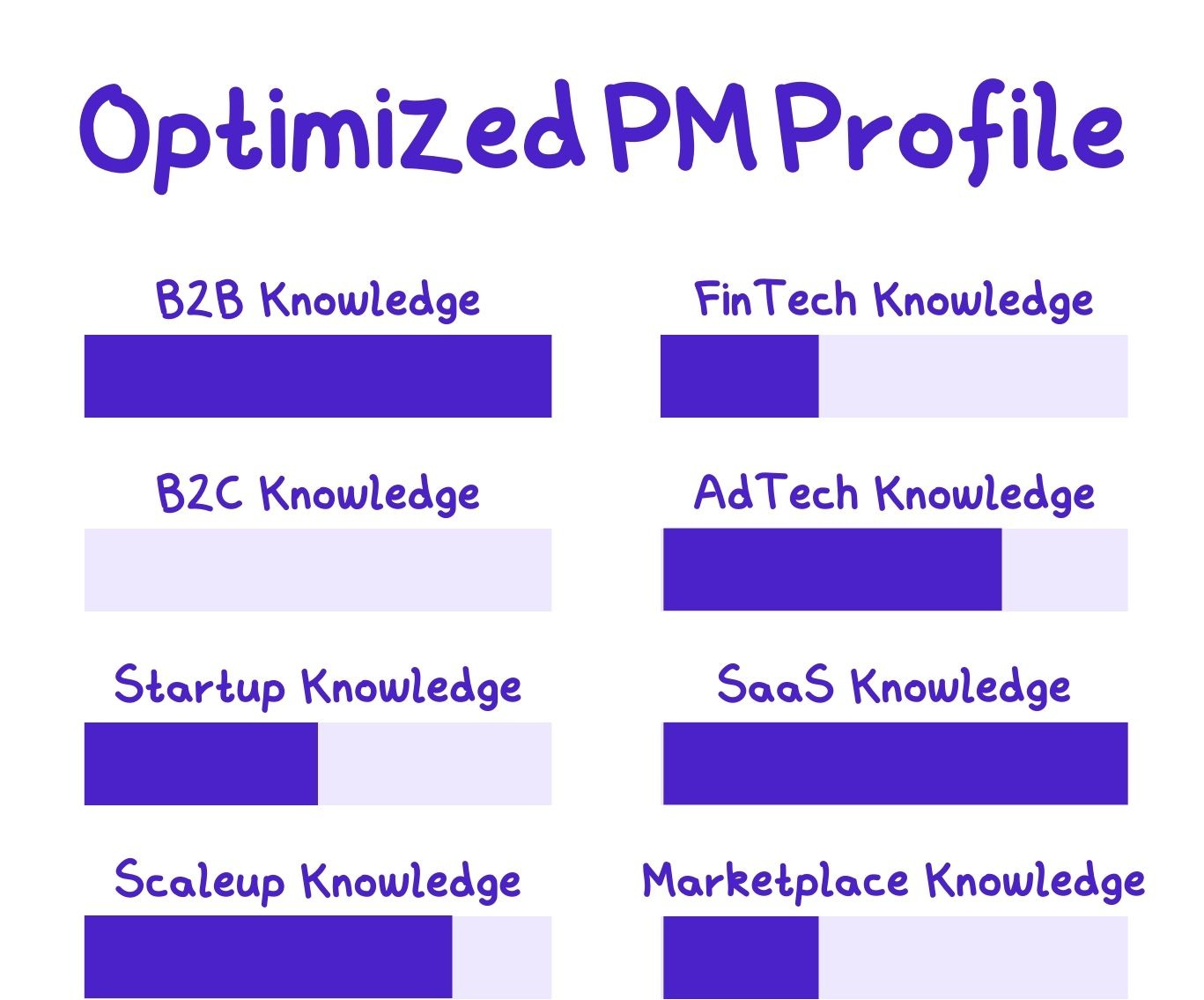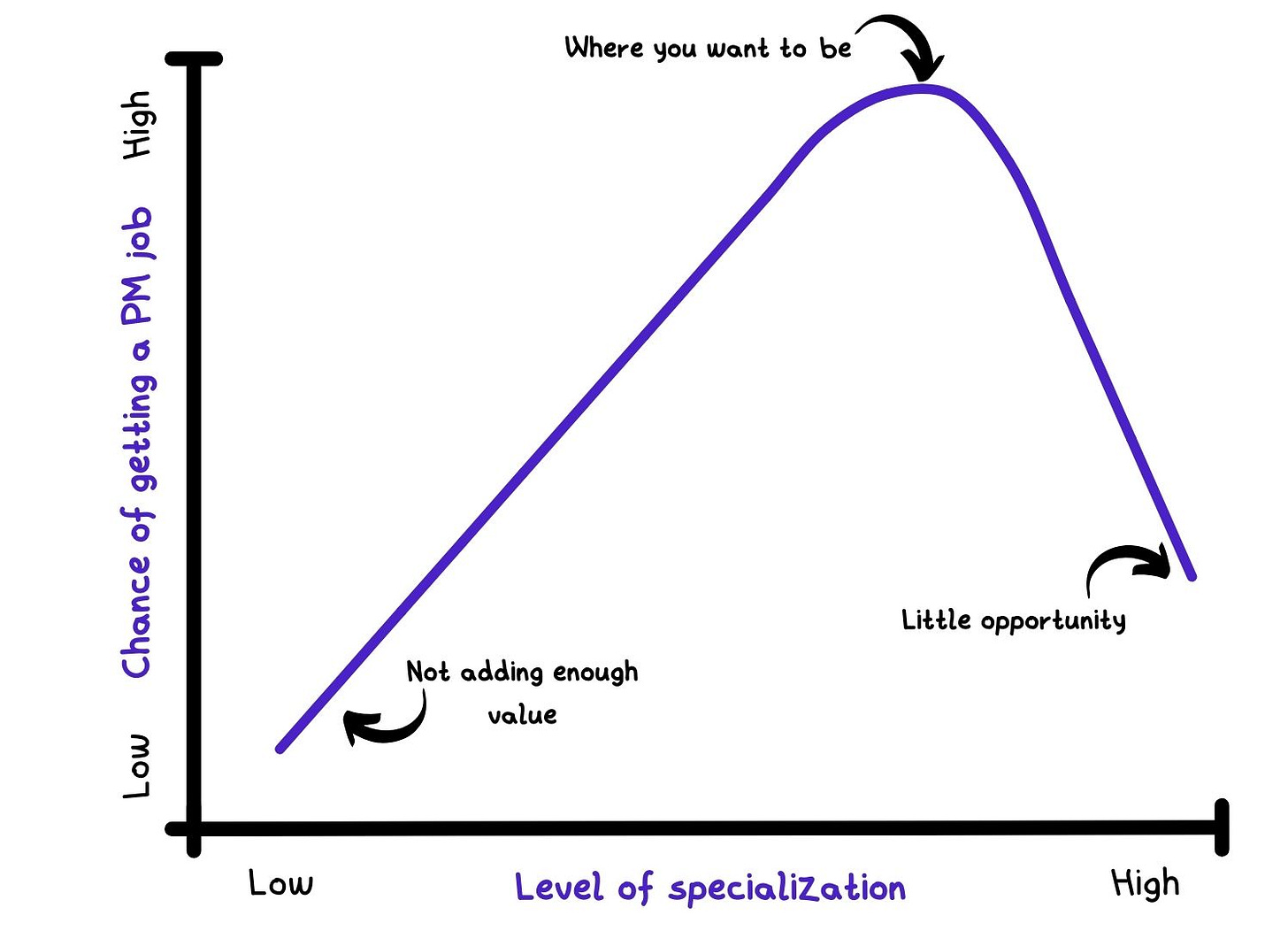The debate between being a specialist or a generalist is more relevant than ever. In the last 2 years, the amount of PM roles has declined or at best stayed stagnant while supply grows (More and more people want to be product managers). This means the competition for each PM role is hard, so setting yourself up for success is critical.
The generalist vs. specialist conversation comes from the problem all PMs have, as they constantly dive deep into specific domains while maintaining a broad understanding of multiple topics. Yet, the decision between specialization and generalization is critical, as it can shape one’s career path and influence the type of companies one might thrive in.
The Case for Specialization
Specialization involves focusing on a particular aspect of product management. This could be along many different dimensions:
Company type (B2B vs. B2C)
Product type (SaaS vs. Marketplace vs. IoT, ...)
Industry (AdTech, Fintech, PropTech, …)
Technology (AI, Data, Mobile, …)
Company size (Startup, Scale-Up, Big Tech, Enterprise, …)
…
Specialists possess a deep understanding of their chosen domain, which allows them to navigate complicated challenges within their area of expertise.
For instance, a product manager specializing in FinTech for scale-up companies brings specific knowledge for example regulatory requirements and the needs of their customer base. Similarly, a specialist focusing on AI technology within B2C marketplace companies will be incredibly well suited to drive innovation in a firm building a B2C marketplace.
The Case for Generalization
Generalists, on the other hand, bring a wide range of knowledge across various dimensions. These individuals might not have the deep expertise of specialists but a broad understanding that allows them to fit into different environments, know how to use various technologies and understand diverse market needs. They are versatile and can work across multiple product types, industries, or technologies.
A generalist might thrive in environments where product lines are diverse, where innovation requires cross-disciplinary insights, or in startup settings where roles are fluid, and wearing multiple hats is necessary. Their ability to go wide rather than deep makes them invaluable in roles that require someone to keep a high-level view. In addition, they can take learnings from one specialization and bring them to another, potentially helping the company they work for make extremely innovative jumps.
Finding Balance
Are you an AI product manager for B2B AdTech marketplaces in the scale-up stage? If a company like that searches for a PM you will be almost guaranteed the job with a high likelihood of a salary way above the market rate. But what if exactly this company does not search for an AI PM right now?
Or are you a PM who worked in both B2B and B2C? Across several product types, sizes, and industries without ever building deep expertise in any field. For you it will be quite tough to stand out in the crowd, on every PM job ad someone more specialized for the role has probably already applied.
While the discussion often presents specialization and generalization as opposing paths, the most effective product managers find a balance between the two. They specialize in some areas while maintaining a broad understanding of others.
For example, one may focus on scale-up companies building B2B SaaS products but has a wide knowledge base in different industries and technologies. This hybrid approach allows them to bring depth in specific areas while staying on a higher level in others.
It’s important to note that specialization or generalization is not a static decision, but a dynamic one that can evolve with time, experience, and changing market demands. Early in a career, a product manager might start as a generalist to explore various domains before finding a niche area of specialization they are truly passionate about. Alternatively, a specialist might broaden their expertise over time to transition into more strategic, leadership roles that require a generalist's perspective.
Considerations for Career Growth
First and foremost, when choosing between specialization and generalization, product managers need to consider their interests and career goals. Specialization can lead to becoming an expert in a niche field, which might offer higher job security and the potential for very high compensation. However, it might also limit the number of positions available. Generalization, on the other hand, offers flexibility and the ability to pivot between roles and industries but may require more effort to stand out in a crowded field.
The sweet spot lies in specializing enough to be uniquely capable of delivering immense value for a company, without heavily limiting the amount of companies your skills apply to.
If you want to assess your employability based on your degree of specialization, look at where you are on the curve today.
Do you already have a deep specialization and it would help you to generalize in some aspects? Or would it make sense to go deeper in 1 or 2 areas? Identifying this is a lot easier than you might think. Go ahead and pick up the dimensions listed on top. (Company type, Product type, Industry, Technology, Company size), and assess if you are a generalist or specialist in these areas. Now add other dimensions as you see fit and repeat the process.
If all your answers point to you being a generalist through and through, invest in some specialization and go deep in an area you want to become an expert in. If you are narrow in all categories, consider going wide by acquiring knowledge outside of your specialization.
VERSUS Series
The VERSUS series is a set of 8 newsletter articles (2 per week) that answer questions PMs ask themselves all the time. Check out the other articles below!







